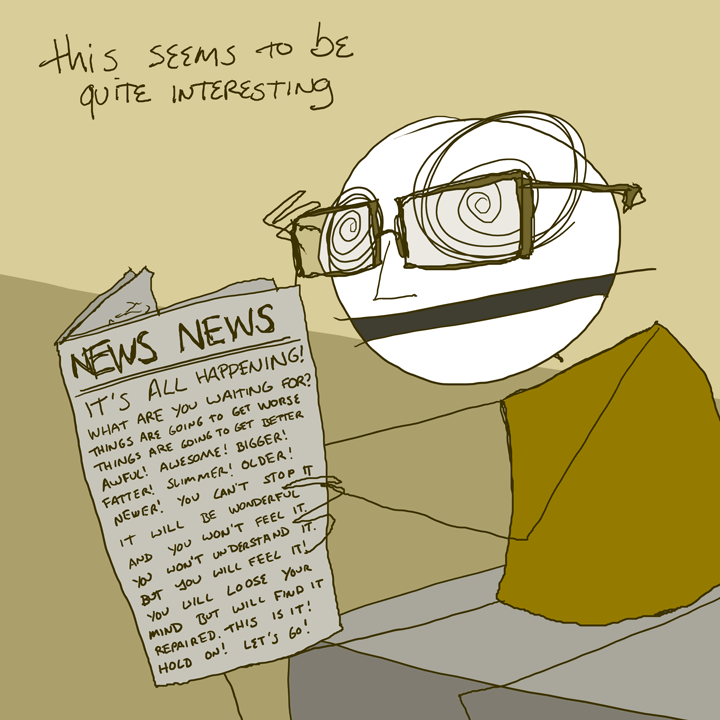first up: a set of studies, all published in science magazine, that i thought was really powerful in its message: never underestimate the power of positive thinking. (found via galley proofs, original posts here and here)
Promoting Interest and Performance in High School Science Classes
Reducing the Racial Achievement Gap: A Social-Psychological Intervention
Recursive Processes in Self-Affirmation: Intervening to Close the Minority Achievement Gap
Promoting Interest and Performance in High School Science Classes
Reducing the Racial Achievement Gap: A Social-Psychological Intervention
Recursive Processes in Self-Affirmation: Intervening to Close the Minority Achievement Gap
in the first study, high school students in science classes had to write essays, either summarizing the course material, or explaining how the material was relevant to their own lives. in the 'relevance essay' group, kids who had low expectations of success wound up with a greater interest in science, and better grades, than kids who just summarized course content. in the other two studies, 7th-graders had to write essays on "self-affirming values," designed to improve their sense of personal adequacy. in minority students (subject to stereotypes), this exercise improved their self-perception and grades, even 2 years later, and decreased their rate of remediation or grade repetition.
in all cases, these "quick and dirty" interventions had a majorly beneficial impact on kids' engagement in school and consequent performance -- especially those kids that least expected to perform well. and since i'm seeing the world through addiction-tinted glasses these days, i'm immediately thinking that a similar effect could be useful for drug abuse intervention as well. drug-addicted people are often marginalized and resigned to feeling like criminals and outcasts, and on top of that, relapse or the inability to stop must be frustrating and demoralizing. i'm curious if exercises that would dispel such stereotypes, improve self-perception, and emphasize the relevance of understanding their condition could engage them more in treatment and improve those outcomes, too.
--- - -
another article, not about, but relevant to drug abuse:
--- - -
another article, not about, but relevant to drug abuse:
some well-put arguments on what the hold-up is on progressive change (albeit in the context of climate change).
--- - -
now this story is just effed up, and a testament to the idea that people will always find a way to chase altered states, regardless of the means available to them:
Kids with Addiction Issues More Likely to Play 'Choking Game' (more extensive report from the CDC here)"Society matters and communication is central to both societal relations and policy-making, but until we figure out pathways and forms that re-invent our governing structures [...] no amount of scientific expertise and effective engagement will catalyze serious collective action on systemic problems."
--- - -
now this story is just effed up, and a testament to the idea that people will always find a way to chase altered states, regardless of the means available to them:
i don't really care so much about the correlation with substance use, because it's pretty evident that a common underlying factor would contribute to both. i'm just thinking, jesus, kids are choking each other to get high?? it's worrisome that kids' drive for a rush is so strong that they turn to asphyxiation, where there is no doubt that it damages health (although, i can't seem to figure out why this bothers me so much when there are drugs that are also dangerous. anyone?) anyway, seems to me like the best approach to addressing any means of altering consciousness (be it via drugs or choking) would be education, education, education.
--- - -
but at the same time, there's this:
Breaking the News or Fueling the Epidemic? Temporal Association between News Media Report Volume and Opioid-Related Mortality
"While availability and individual predispositions influence initiation of substance use, elements of the social environment, including news reporting, may enhance the popularity of psychoactive substances among potential nonmedical users and foster demand."(and it's not just that there's more reporting when there's more of it happening... the death trends tend to follow the reports, rather than precede them).
damned if you do, and damned if you don't, eh? this is a tough one for me, and i'm not sure yet how to reconcile it with my drive-to-educate. i'm curious, though, what the content of these news stories tended to be, and how they balanced the risks and benefits of the drugs (the authors do mention that some reports "amounted to inadvertent endorsements" -- which is troubling to me b/c i used to get accused of the same thing during my attempts to educate.) in any event, their main message seems to be about journalistic standards and responsible reporting, and although i'm kind of torn on what to think, i do dig their call to action at the end:
"Perhaps the next “drug epidemic” will benefit from a more balanced and public health approach to reporting, but it requires immediate interdisciplinary action."

No comments:
Post a Comment